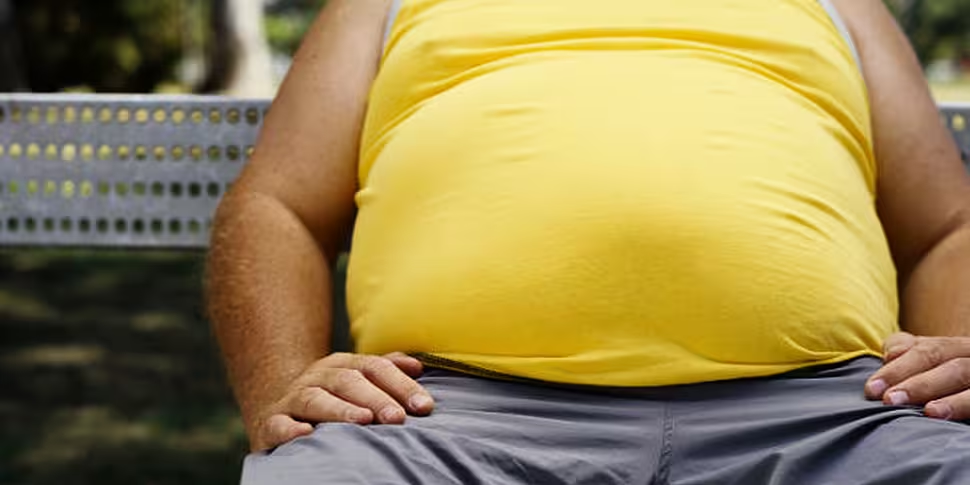Newstalk Magazine is available now for free from the Apple app store.
Wellness, health and fitness, mindfulness and the latest dieting craze fasting; it seems we’re being bombarded on a daily basis by newspaper headlines, media alerts, social media’s blogs, circles, tags, threads all exhorting us to eat more healthy foods, exercise more, meditate and hydrate – 2 litres of water a day (some say 3). But are we getting any healthier? Are we in better shape? Are we happier?
The evidence paints a depressing picture of the state we are in. Recent studies by the Department of Health and Safefood Ireland have found that one in four Irish primary school children are obese and one in three Irish adults are overweight. It also looks like a lot of us are not getting off the couch which combined with nutritionally poor diets are resulting in chronic illnesses: 21–25% of breast and colon cancers, 27% of diabetes and 30% of heart disease according to a recent study by the World Health Organisation.

Photo: Tony Alter/Flickr
In fact the numbers are reaching epidemic proportions with obesity affecting one in ten adults in Ireland today and the incidence of type 2 diabetes predicted to rise to 9% of Irish adults over the age of 45 by 2020. (Dr. Ray O’Connor, Irish Medical Times)
In older age the picture isn’t any better and apart from the rise of chronic illnesses; heart disease, respiratory illnesses a shocking new discovery is emerging – believe it or not malnutrition. What would be regarded as a condition associated with Third World countries or chronic neglect is on the rise in the elderly population.
A recent study by the Nursing School at Galway University reported that 20% of elderly admissions to hospitals are due to dehydration and malnutrition and that 70% of those patients are undiagnosed with this condition at the time of admission. So, health conditions traditionally associated with older age, reduced mobility, falling, digestion issues, poor wound healing, depression are not the natural outcomes of growing old but rather often caused by poor nutrition and dehydration.
It’s becoming increasingly clear that the health system and social services cannot cope with the increasing numbers of ill people and the rising costs of medications and care, in particular for the elderly.
So what we can we do to live well, be well, live happy and fulfilled lives?
A change in mindset is needed, whereby; we ourselves take back control of our own health and well- being and stop handing over total responsibility to our doctors and to medications that treat the disease but not the cause.Innovations in technology may hold the key to helping us make better choices in the foods and drinks that we consume, better ways to exercise, stress management so that we can live well and be well. There’s lots of information out there and apps aplenty to help us (MyFitnessPal.com being the most popular one at present). While we may be data-rich beyond our wildest dreams, we are time poor and it’s becoming increasingly difficult to manage our digital lives.

Photo: Marcy Kellar/Flickr
We need to go one step further and here is where technology can help us. Our online world and our physical world are in the main two separate entities – a physical-digital divide. Everyday information is created in our bodies through our thoughts and actions. This information largely goes unnoticed and vital data concerning our well-being is lost. The Sensor Web being developed by the Clarity Centre (a collaboration of over 60 researchers at UCD, DCU and The Tyndall National Institute) is leading the way in developing technologies that will help us gain more control over our lives, make better choices for wellness and good health.
The catalyst for the major change in how we can cross the physical-digital divide lies in the development of flexible sensor technologies which will sit alongside the more traditional keyboards, scanners and create new peripherals to bring a wealth of self -generated information to the wider web. The new sensors will allow for the ‘sensing’ of multiples of events in the outer physical world – environment, energy consumption, recycling and in our inner world capturing physiological data as we get on with our daily lives. This unique combination of sensors, software, and the internet will enable new types of information transmission across a wide range of sectors from the environment, education, entertainment, business and health.
Barry Smith, Director of the Clarity Centre, says that the vision for the Sensor Web is ‘that better information helps people to make better decisions and that by harnessing the potential of the sensor web we can help people to live healthier, safer, and more productive lives.’
- Sensing the Body – Focusing on the use of wearable technologies to capture physiological data from the wearer with key applications areas such as exercise, sports and personal health.
- Sensing the Mind – Recognising the preferences of individuals and groups of users by mining sensed interaction data.
- Sensing the Place – Focusing on the use of sensors in monitoring the world in which we live, with applications in environmental monitoring.
© Clarity Centre, UCD, DCU, Tyndall National Institute
Wearable sensors are emerging which are creating personal health (pHealth) networks harvesting a variety of sensed readings available for analysis by the wearer and other professionals.
The Clarity Centre are also working with the Sense Cam – a device that is worn around the neck and passively records ‘lifelog’ images and sensor readings (e.g. body heat) of the wearer’s daily lives. Events of interest can be recorded from the wearer’s point of view so that people can access their own autobiographical memories. Early research at DCU indicates that the Sense Cam could be helpful for people with memory issues and Alzheimer. This is an exciting development for this most distressing condition.
We are already familiar with blood pressure monitors and sports performance watches. Surely it’s only a ‘hop, skip and a jump’ to sensor devices that will record our mental, physical and emotional states so that we ourselves can monitor our well-being, detect changes in health status that are leading to chronic illness and alert us to take action – reduce salt, sugar, saturated fats, get off the couch or recognise that it’s time to head to the Nutrition and Health Coach, Fitness Instructor, Doctor or other specialists for professional help.
We own our own health.
Catherine Boland, Nutrition and Health Coach. (ITEC/BTEC/FETAC)
This article originally appeared in Newstalk Magazine for iPad in August, for more details go here.









